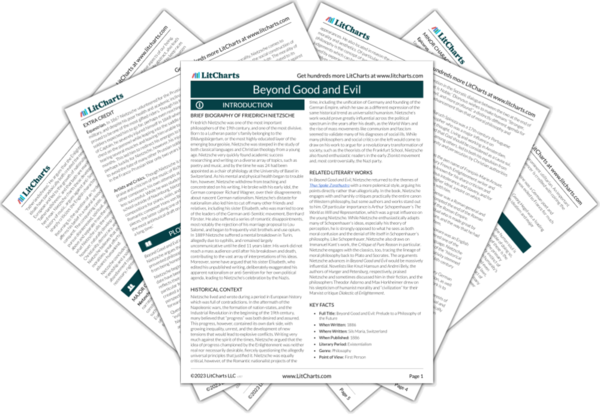Previous
Terms
|
Previous
Terms
|
The Will to Power Term Analysis |
Next
Materialism
|
“Exploitation” does not belong to a corrupt or imperfect and primitive society: it belongs the essence of what lives, as a basic organic function; it is a consequence of the will to power, which is after all the will of life.
If this should be an innovation as a theory—as a reality it is the primordial fact of all history: people ought to be honest with themselves at least that far.
